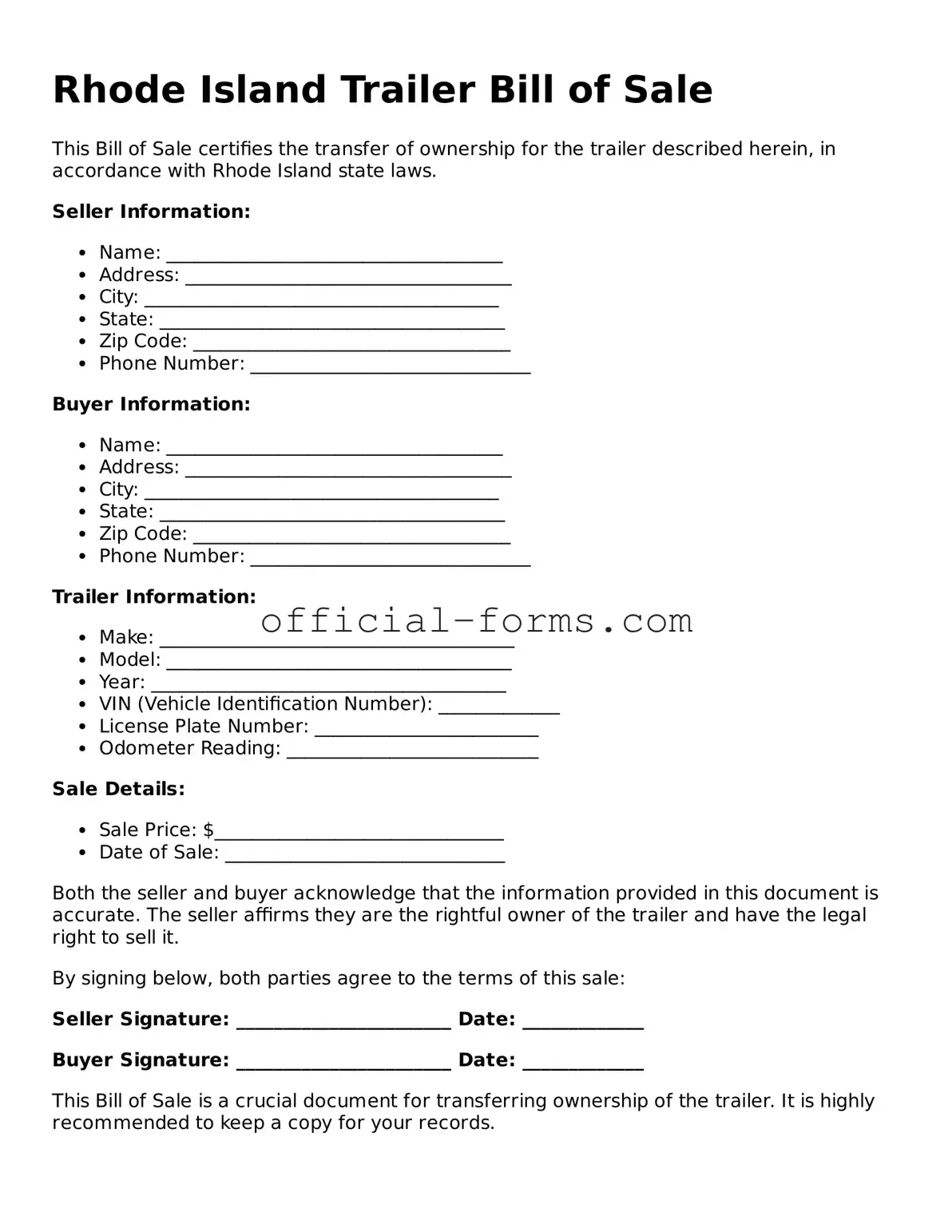Filling out the Rhode Island Trailer Bill of Sale form is a straightforward process, yet many individuals encounter common pitfalls that can lead to complications. One frequent mistake is failing to include all necessary details about the trailer. Essential information such as the Vehicle Identification Number (VIN), make, model, and year must be accurately recorded. Omitting any of these details can create issues during registration or transfer of ownership.
Another common error involves incorrect information regarding the seller and buyer. It is crucial to provide full names, addresses, and contact information for both parties. Incomplete or incorrect data can lead to disputes later on, particularly if either party needs to verify ownership or address issues related to the sale.
Many people also neglect to sign the document. A signature from both the seller and buyer is vital for the bill of sale to be legally binding. Without these signatures, the transaction may not be recognized by the state, potentially leading to legal challenges in the future.
Failure to date the bill of sale is another oversight that can complicate matters. The date of the transaction is important for establishing timelines related to ownership and registration. If the date is missing, it may lead to confusion or disputes about when the sale actually occurred.
Some individuals make the mistake of not providing a clear description of the trailer’s condition. Including details about any existing damages or repairs can protect both parties. If the condition is not documented, misunderstandings may arise regarding the trailer’s value and functionality.
Another issue arises when individuals do not retain copies of the completed bill of sale. It is advisable for both the buyer and seller to keep a copy for their records. This documentation can serve as proof of the transaction and may be necessary for future reference.
Inaccurate pricing is also a common mistake. The sale price should reflect the agreed-upon amount and be clearly stated. If the price is not specified or is incorrectly recorded, it can lead to disputes or complications during the registration process.
People sometimes fail to understand the importance of notarization. While notarization is not always required, having the bill of sale notarized can add an extra layer of authenticity and security to the transaction. This can be particularly beneficial if either party needs to prove the legitimacy of the sale later.
Lastly, neglecting to check for outstanding liens or obligations on the trailer can be a significant oversight. Buyers should ensure that the trailer is free of any liens before completing the sale. This step helps prevent future financial complications and ensures clear ownership.
In summary, being mindful of these common mistakes can facilitate a smoother transaction when completing the Rhode Island Trailer Bill of Sale form. Attention to detail and thoroughness are key in ensuring that the sale is legally sound and free from future disputes.

